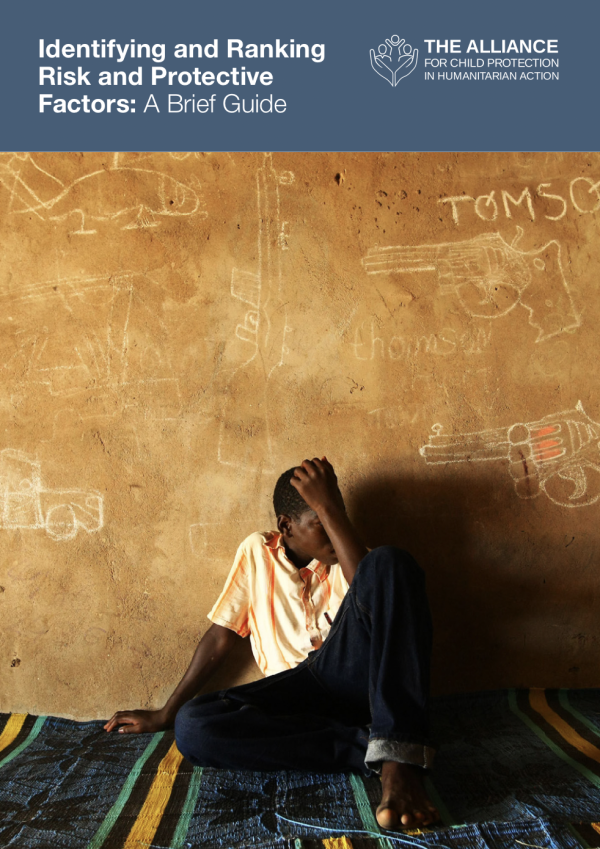
Guidance | Identifying and Ranking Risk and Protective Factors: A Brief Guide

Recognizing the strategic importance of improving evidence- based approaches to preventing child protection issues, this guidance document was developed as part of the Alliance-led Prevention Initiative to support child protection humanitarian practitioners in their prevention programming efforts. While child protection agencies operating in humanitarian contexts generally conduct systematic risk assessments, these assessments often focus on determining the scale and characteristics of harmful child protection outcomes and do not typically identify or seek to understand the risk and protective factors leading to desirable or undesirable outcomes for children within the cultural context. The participative listing and ranking methodology will support practitioners in identifying risk and protective factors at all levels of the socio-ecological framework. This will lead to practical action and strengthened prevention programming.
This guidance document was created in support of the Prevention Initiative and its objective to develop key prevention focused resources to support child protection humanitarian practitioners in their efforts to prevent harm to children before it occurs. The contents of this guide were informed by the Alliance report: Understanding Risk and Protective Factors in Humanitarian Crises: Towards a Preventive Approach to Child Protection in Humanitarian Action.
- 3521 views
